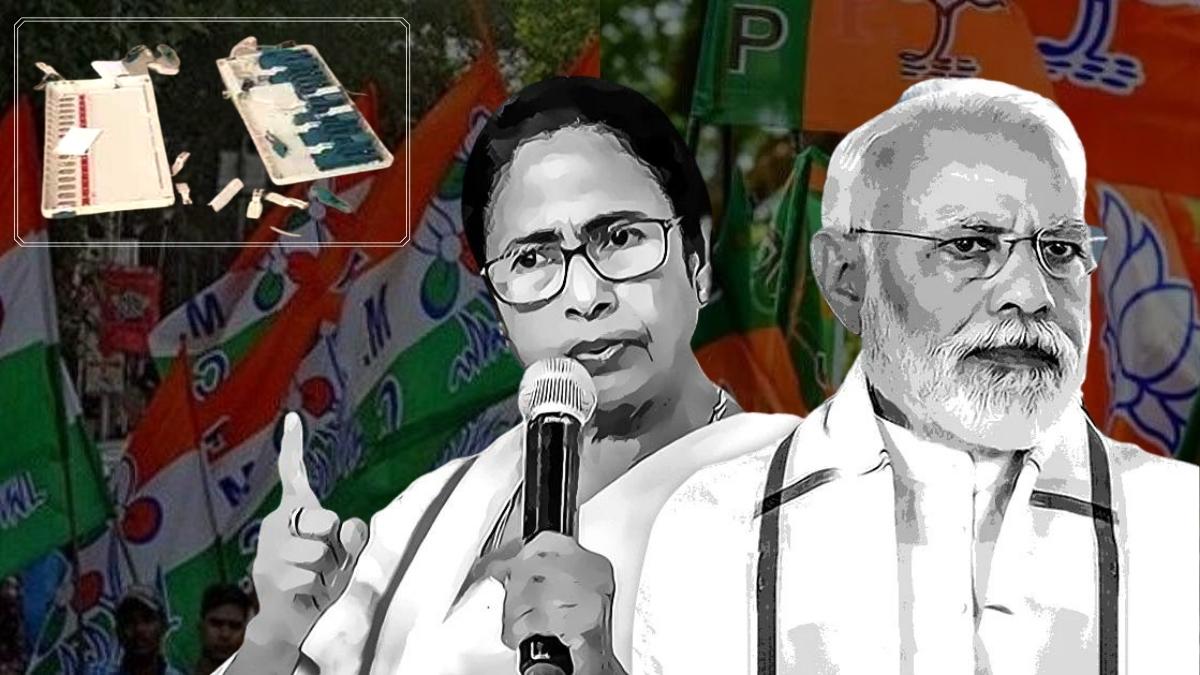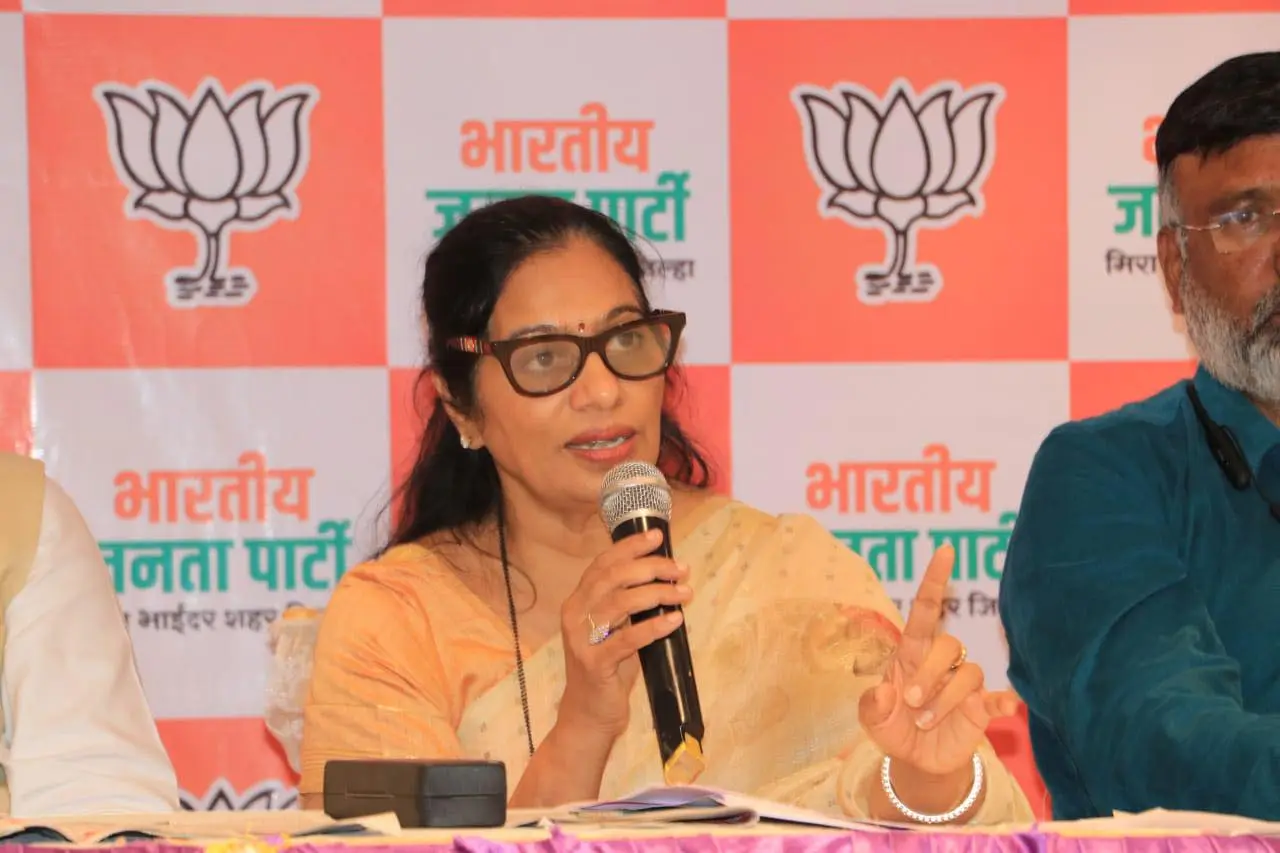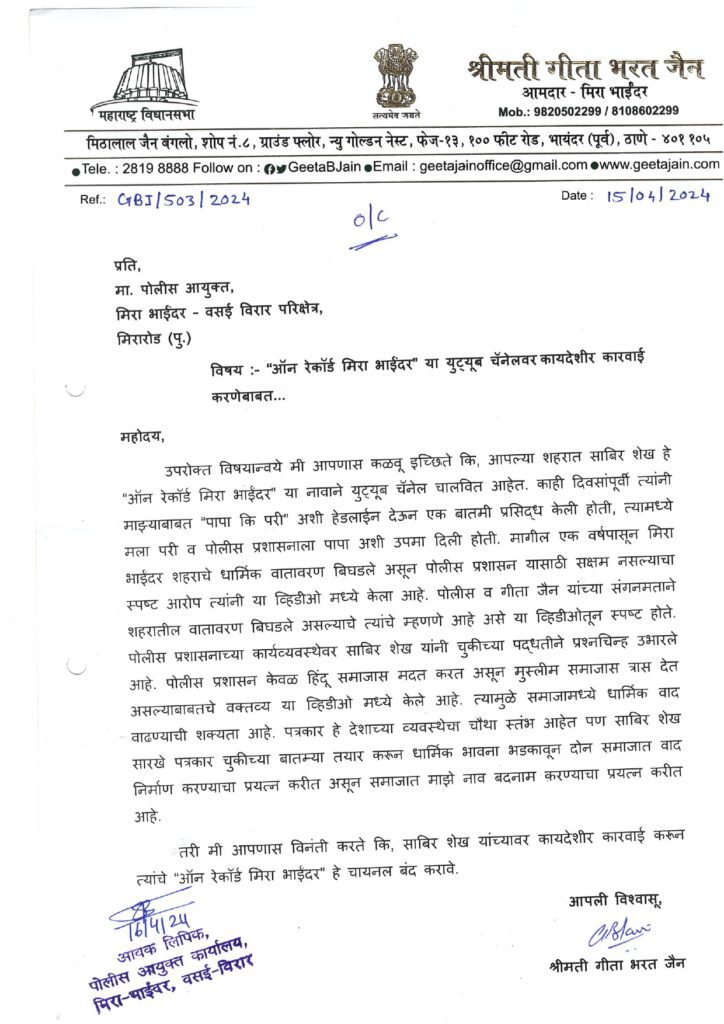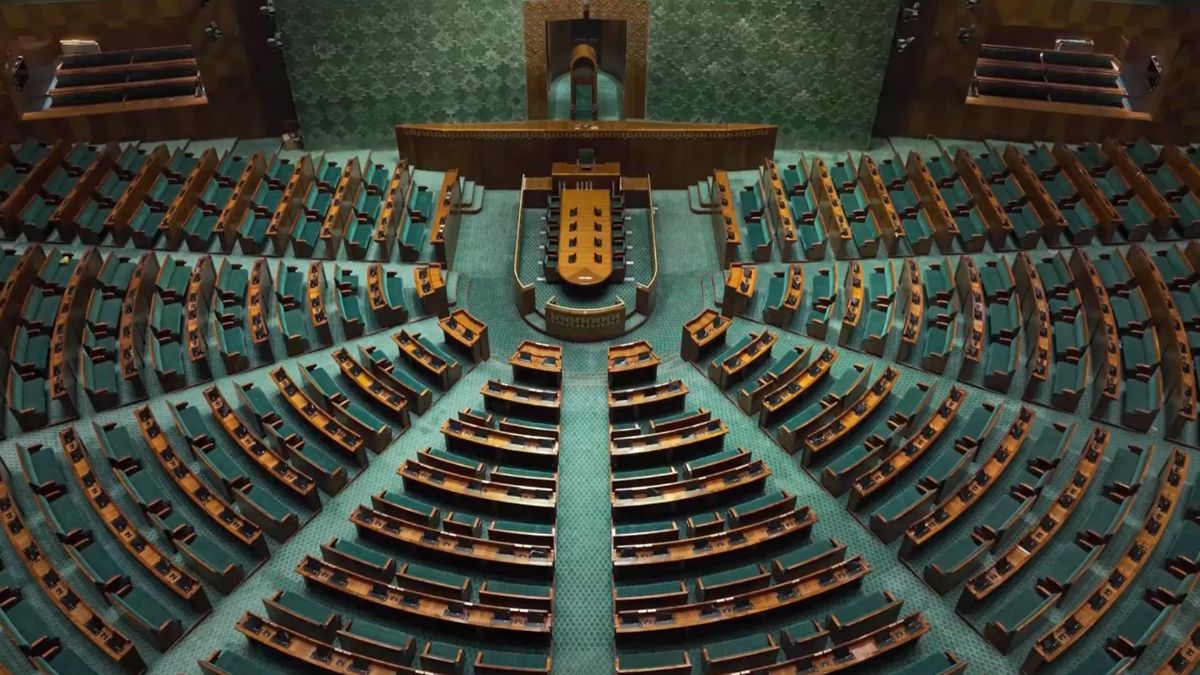Anushka Pathak – Mumbai Uncensored, 01st March 2022
On Sunday (February 27, 2022), elections in 20 districts of West Bengal were ruined by incidents of vandalism, assault, violence and election malpractices. The incidents took place in the backdrop of the Supreme Court’s decision to not deploy central armed forces for the civic body polls in the State.
A clash broke out between TMC & BJP workers during the polling for civic polls in North 24 Pargana on 27th February 2022. The local BJP MP Arjun Singh told the media, “2 EVMs have been vandalized at ward 9, the similar situation across the state. Police are arresting BJP workers and not letting them vote. All booths have been captured.”
As voting for civic polls have begun in West Bengal, TMC goons have resumed their age-old violence at many places. Incidents of violence are being reported at many places in West Bengal in which TMC workers have gone out of their way to intervene with the normal polling processes causing violence.
TMC is well-known for its violence during elections. From beating up workers to hurling bombs, TMC workers have done it all. Opposition including BJP has accused TMC of violence and demanded action against them.
Member of Parliament Arjun Singh is the Vice President of the West Bengal state unit of the BJP. He further added, “Only police and goons are voting here. Voters are scared to vote, especially the Bengali population, who are not being allowed to vote. Even TMC’s core vote bank, Muslims are not able to vote. The police here are playing one of the 3 monkeys of Gandhiji.”
Notably, Arjun Singh was earlier attacked by TMC goons in the North 2 Pargana district when he was on his way to attend a program on the birth anniversary of Netaji Subhash Chandra Bose.
The BJP has also accused TMC of intimidation in the area where the opposition leader Suvendu Adhikari lives, which is the Kanthi area. The party has also alleged that its candidate in Konnagar of Hugly was beaten up by TMC goons. BJP workers were seen protesting against this violence on 26th February 2022 in the night. The opposition parties including BJP are alleging that the violent attacks have suddenly surged in the last twenty-four hours, that is, just before the actual polling.
Bombs were hurled near the residence of a CPM candidate on the night of 25th February 2022 in the Kamarhati area of the North 24 Pargana district. Incidents of alleged attacks are also being reported from Barrackpore. A delegation of women from the Left’s women organization visited the state election commission office on Saturday, 26th February 2022. This delegation had demanded CCTV cameras be operational during the poll hours. But, according to the opposition, the police are involved in encouraging the TMC goons instead of providing safe polling arrangements.
A CPM candidate has also been allegedly attacked by the TMC goons in Arambagh. In the Murshidabad district, TMC goons have beaten up several leaders and candidates from the opposition parties. There are also reports from the Midnapore district that a few media persons have been beaten up by the TMC goons.
BJP’s national Vice-President and West Bengal BJP leader Dilip Ghosh condemned the attacks on the opposition party workers by TMC goons. He said, “It is unimaginable that there will be no violence in West Bengal during an election. There is no rule of law in Bengal.”
Since the time of Bengal’s post-poll violence took place in May 2021, ever since it became clear that Mamata Banerjee was all set to retain power in the state; heinous, animalistic violence was unleashed upon the people of Bengal, specifically, those who dared to either work for BJP or those who dared to vote for them in the state elections.
After the announcement of results of the 2021 West Bengal Legislative Assembly election, declaring that the incumbent Trinamool Congress government would be returning to power for the third time, violence broke out in some parts of West Bengal. In reality it was a continuation of the violence which took place across the state during the election.
Many women, including a minor girl, were allegedly raped by TMC workers as their family members voted against them. Allegedly, a 60-year-old woman was raped and her daughter-in-law was beaten up by TMC goons; their account moved to Supreme court.
BJP’s Bengal minder Kailash Vijayvargiya made a statement saying houses of over 4,000 BJP workers were ransacked overnight and at least 100 shops were looted.
In Kolkata, slain BJP worker Abhijit Sarkar’s mother accused TMC’s re-elected Beliaghata MLA Paresh Paul of being involved in the fatal attack on her son and his pets.
Many such incidents took place in the post-poll violence in West Bengal which shattered the hearts of many. Hopefully, the history will not be repeated this time.



 Special Editions3 weeks ago
Special Editions3 weeks ago


 Special Editions4 weeks ago
Special Editions4 weeks ago
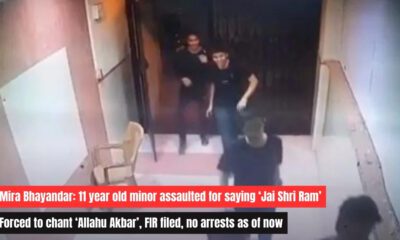

 Crime News1 month ago
Crime News1 month ago


 Special Editions3 weeks ago
Special Editions3 weeks ago


 Entertainment4 weeks ago
Entertainment4 weeks ago
